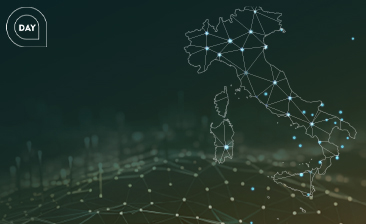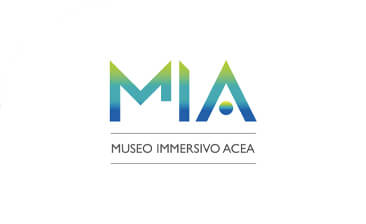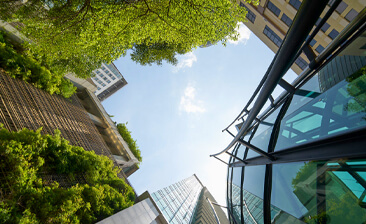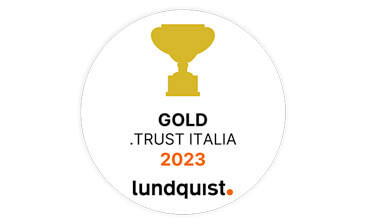
Acea for World Energy Saving Day
There are several initiatives carried out by the Acea Group to contribute to the achievement of SDG 13 of the UN 2030 agenda, such as the choice to increase the production of electricity from renewable sources; the implementation of energy efficiency measures in all production processes and offices; the use of G.O. certified energy for internal use; the offer of certified green energy in the sale of energy and the purchase of carbon credits to offset the emissions of the gas sold; the development of services functional to the diffusion of sustainable mobility and other services aimed at the energy efficiency of buildings, the efficient use of resources, in particular water, and all actions aimed at contributing to the protection of the natural environment and the reduction of emissions of the company and the social contexts in which it operates.
Climate change is defined as any long-term alteration of global temperatures and weather patterns. Among the effects that climate change is causing, the most significant is the increase in global warming related to the greenhouse effect.
The greenhouse effect is the natural phenomenon whereby the atmosphere retains part of the energy from the sun, preventing it from being dispersed into space. This causes the warming of the planet's surface, making life possible, and occurs through gases, namely greenhouse gases. These gases can be of natural origin, such as water vapour (H2O), carbon dioxide (CO2) and methane (CH4), or anthropogenic, such as chlorofluorocarbons (CFCs).
The greenhouse effect is therefore not negative per se. However, human activity has caused an excessive increase in the concentration of greenhouse gases in the air, leading to the overheating of the atmosphere and the resulting climate change.
Global warming is also causing rising sea water temperatures and melting glaciers that alter the ecosystem and lead to rising sea levels.
In line with SDG 13 of the UN 2030 Agenda, Acea Group contributes to fight this phenomenon by implementing initiatives to protect the environment and the territory, such as the efficient use of resources, the containment of climate-altering emissions, actions to increase the capacity of infrastructures to adapt to climate change and raising awareness on climate change issues.
To tackle climate change, Acea is taking action to curb emissions from its industrial activities.
It also monitors and assesses its carbon footprint and identifies mitigation actions to reduce its impact.
The Group offers its customers increasingly green and sustainable services, as well as implementing initiatives to make its infrastructure more resilient.
Biogas is energy resulting from the anaerobic digestion of organic matter by microorganisms, producing mainly methane and carbon dioxide. To reduce the consumption of energy from fossil sources and with a view to the circular economy, Acea Ambiente manages plants that combine the anaerobic digestion of organic waste and waste water to produce biogas with which it is possible to generate electricity and thermal energy. The process of producing energy from biogas involves the preliminary treatment of organic waste, followed by anaerobic digestion in landfill for approximately 21 days. The biogas produced powers an engine connected to an electric generator to produce electricity, while the residual heat can be used for thermal purposes. Surplus energy is fed into the electricity grid.
Acea Energia has introduced 100% environmentally friendly and value-added products such as boilers, air conditioners and wall boxes to reduce consumption in its light and gas commercial offer. In addition to green-certified electricity with "Guarantee of Origin", the sale of gas is expected to offset carbon dioxide emissions produced by consumption through the purchase of certified carbon credits (VER - Verified Emission Reduction). In addition, Acea Innovation offers energy requalification services that generate a reduction in the climate impact of homes and cities.
Acea carries out numerous actions in line with Goal 13 of the UN 2030 Agenda for a more sustainable future. For many years, it has been responding to the CDP (formerly Carbon Disclosure Project) questionnaire promoted by the organisation of the same name, through which the company provides detailed information on its governance, strategy, actions taken and performance on climate change. In 2023 Acea also published the second edition of the Climate Disclosure in line with the recommendations of the Task Force on Climate-related Financial Disclosures (TCFD).
The document is divided into four subject areas (Governance, Strategy, Risk Management, Metrics and Targets) and describes the strategy adopted by the Group to manage climate change issues and the objectives identified in the medium to long term.
Discover the latest news and initiatives of the Acea Group

Acea for World Energy Saving Day

Visit the virtual museum about the history of the Acea Group

The channel for the commercial requests on land urbanisation

Acea turns the spotlight on the Rome Film Festival 2023

Acea is in the "Gold class" in the .trust research

Read more about our culture of inclusiveness